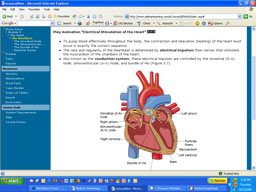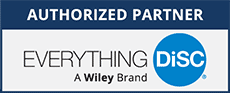Medical Terminology is a key skill for a variety of jobs within the industry. Whether you are interested in medical transcription, billing and coding, medical administration, or clinical roles, knowing the terms will be essential for your success.
There are a variety of ways and tips to learn medical terminology, but taking online courses can give you many added benefits, including the ability to learn in your own way and at your own pace. But how do you ensure that you retain this information? Here are some tips on how to learn medical terminology.
What Are The Best Ways to Study Medical Terminology?
 Make flashcards: It’s true, this old-fashioned elementary school method really works. Why? Because the human brain learns by visual cues, looking at the word to recall the definition can help train your brain for memorization. You can purchase medical terminology flashcards, but making them yourself will also help you learn the words and their definitions and retain them for the long term.
Make flashcards: It’s true, this old-fashioned elementary school method really works. Why? Because the human brain learns by visual cues, looking at the word to recall the definition can help train your brain for memorization. You can purchase medical terminology flashcards, but making them yourself will also help you learn the words and their definitions and retain them for the long term.
- Record yourself: Simply speaking and hearing medical terminology out loud can also help you learn. One simple trick is to record yourself saying these medical terms and their definitions. The act of recording them will create aural flashcards. Listening to your recording will help you remember the words when you come across them in your reading.
- Make it a game: Medical educators are learning about the benefits of gamification to aid in learning difficult concepts. Games can offer an enjoyable alternative for engaging your brain. These games are most effective when they are developed with task oriented learning in mind and a scoring system to keep track of advancement. Many online medical terminology crash courses offer games an interactive activity to make the learning process more enjoyable for the student. You may also find apps for your smart phone or tablet that can help add gamification to your study program.
- Memorize root words: Medical terminology is based on Latin and Greek root words. Understanding the word parts will help you understand complex medical terms. Often knowing part of a word will help you figure out the meaning of the entire word. For instance, knowing that “bronch” is the root for terms related to the respiratory system, makes it easier to understand that “bronchial” or “bronchitis” is also related to the lungs or breathing.
Have you considered learning medical terminology to advance your career? There are many exciting jobs that require medical terminology as a prerequisite.
Begin Learning Medical Terminology Today
Corexcel offers a fully accredited, self-paced online medical terminology course that includes interactive study experiences, audio pronunciations and video animations.


